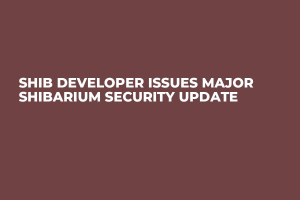
Disclaimer: The opinions expressed by our writers are their own and do not represent the views of U.Today. The financial and market information provided on U.Today is intended for informational purposes only. U.Today is not liable for any financial losses incurred while trading cryptocurrencies. Conduct your own research by contacting financial experts before making any investment decisions. We believe that all content is accurate as of the date of publication, but certain offers mentioned may no longer be available.
Shiba Inu developer Kaal Dhairya has recently addressed concerns in the SHIB community, which arose after X account "Woof decentra" tweeted that its official Shiba Inu: Deployer 1 wallet was hacked.
Woof decentra warned that recent transactions, including new token launches, have been compromised as attackers have seized control of the wallet, urging the SHIB community to ignore activity from the address: "My official Shiba Inu: Deployer 1 wallet (0xA221af4a429b734Abb1CC53Fbd0c1D0Fa47e1494) was hacked. All recent transactions, including new token launches, are not mine. Be careful and ignore any activity from this address."
This tweet caught the attention of the SHIB community, which enquired about its implications. The Shiba Inu deployer 1 is assumed to be associated with the LEASH contract, hence the concerns from the SHIB community.
SHIB developer responds
Shiba Inu developer Kaal Dhairya has responded to the latest development, waving off concerns of the incident affecting critical Shiba Inu ecosystem systems. "No critical systems are tied to it," Kaal said on X, referring to the Shiba Inu deployer 1 wallet. He, however, highlighted a known LEASH issue with an earlier developer.
While the wallet can and will be used to launch new tokens in the future, as has been happening, Kaal warned the Shiba Inu community that these tokens could be scams.
This clarification from the Shiba Inu developer is deemed essential following the recent LEASH development.
On Aug. 11, the LEASH total supply increased by nearly 10%, contradicting the commonly held belief that its supply was fixed and rebasing was disabled. According to Kaal, while owners had renounced addresses, functional control over supply adjustments remained through an orchestrated contract chain.
Moving forward, two suggestions lie on the table: negotiate with the original developer, which has been fruitless in the past, or launch LEASH v2 on a new, audited, non‑rebase contract, subject to DAO approval.


 Arman Shirinyan
Arman Shirinyan Alex Dovbnya
Alex Dovbnya Dan Burgin
Dan Burgin